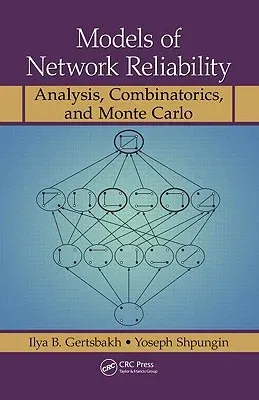Unique in its approach, Models of Network Reliability: Analysis,
Combinatorics, and Monte Carlo provides a brief introduction to Monte
Carlo methods along with a concise exposition of reliability theory
ideas. From there, the text investigates a collection of principal
network reliability models, such as terminal connectivity for networks
with unreliable edges and/or nodes, network lifetime distribution in the
process of its destruction, network stationary behavior for renewable
components, importance measures of network elements, reliability
gradient, and network optimal reliability synthesis.
Solutions to most principal network reliability problems--including
medium-sized computer networks--are presented in the form of efficient
Monte Carlo algorithms and illustrated with numerical examples and
tables. Written by reliability experts with significant teaching
experience, this reader-friendly text is an excellent resource for
software engineering, operations research, industrial engineering, and
reliability engineering students, researchers, and engineers.
Stressing intuitive explanations and providing detailed proofs of
difficult statements, this self-contained resource includes a wealth of
end-of-chapter exercises, numerical examples, tables, and offers a
solutions manual--making it ideal for self-study and practical use.

